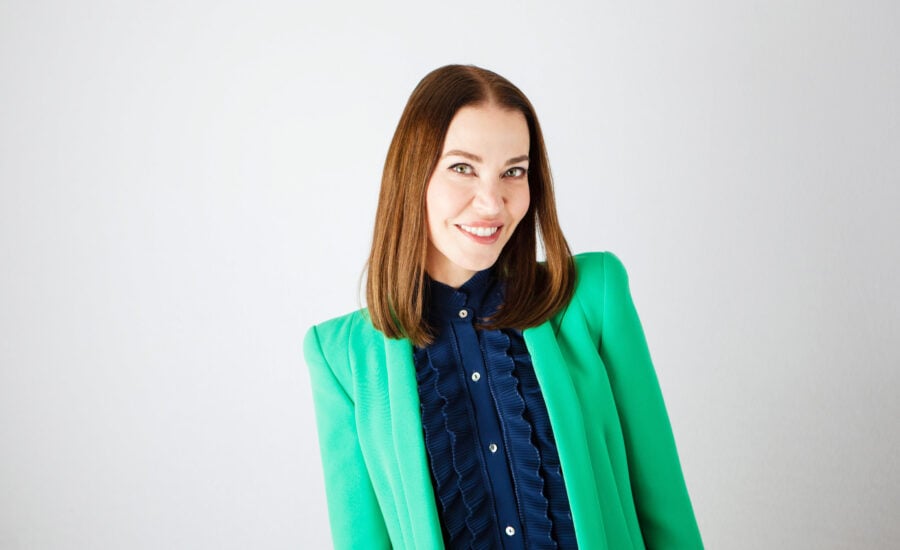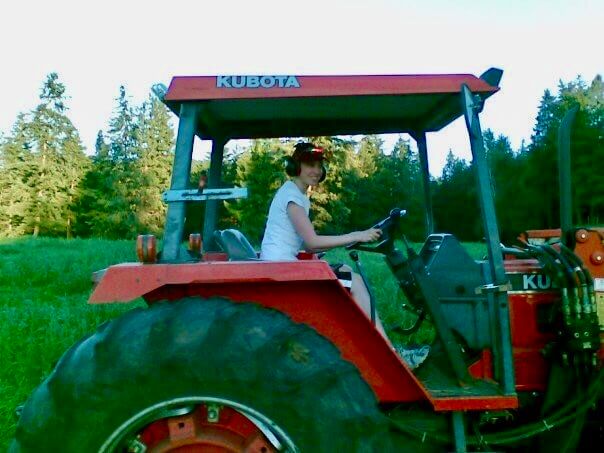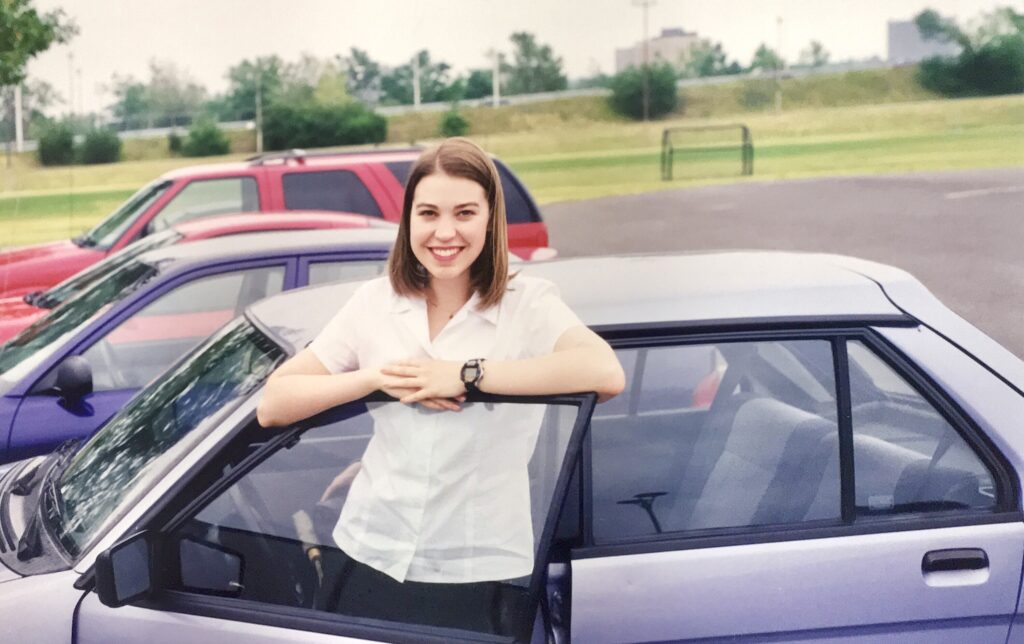“My first experience of buyer’s remorse has guided my spending ever since”
Financial journalist and podcaster Kerry K. Taylor shares her early financial lessons and regrets, and how a past recession shaped her view of money.
Advertisement
Financial journalist and podcaster Kerry K. Taylor shares her early financial lessons and regrets, and how a past recession shaped her view of money.

If Kerry K. Taylor looks familiar, you’ve likely seen her on TV, sharing smart personal finance tips on news and lifestyle shows like CBC’s The National and CTV’s Your Morning. The financial journalist has also written for the Globe and Mail and Toronto Star. Taylor is also the knowledgeable and compassionate voice of Squawkfox.com, the award-winning financial website she created in 2007, and host of The Cash and Kerry Podcast. Originally a Torontonian, Kerry now lives in rural British Columbia, where she answered these questions for MoneySense.
My financial heroes are those fighting for investors’ rights across Canada. The recent nationwide ban on unfair mutual fund fees, such as deferred sales charges, represents a decade-long effort by groups including FAIR Canada and is a huge win for Canadians.
I spend my free time walking. Walking isn’t just about exercise, it’s a fantastic way to find solitude and disconnect from technology. I also do my best writing in my head while walking.

I would be doing the exact same thing I’m doing right now. I live off the grid in the middle of a forest and write about money, do radio and TV interviews in my studio, and publish The Cash and Kerry Podcast. You might also find me driving an orange tractor.
I was around five years old when my father gave me his pennies because they were heavy and made a mess of his wallet. After collecting about 100 of them, I also discovered they were heavy and made a mess of my wallet. I learned bills are easier to spend than coins, and the form of currency can impact our spending habits.
Today, it’s even easier to spend with digital wallets, especially online. As a financial journalist, I lean towards behavioural science to help people build checks and balances to overcome impulsive FOMO spending. Thankfully, pennies are now extinct.
The first thing I bought with my own money was a pink yo-yo. I regretted it right away because my hands were too small to make it fly. This was my first foray into buyer’s remorse, and that terrible feeling has guided my spending behaviour ever since.
My first job was babysitting the neighbour’s kids every Tuesday and Thursday after school. My first paycheque was an actual cheque for $25, and I was disappointed instantly—my name was misspelled, and asking for a new cheque was a pain.
I also delivered the Pennysaver to 190 houses every week. My newspaper bag was big, and the pay was tiny. I stuck with it because I was determined to save enough to buy a Walkman.
I graduated university during a recession, so my financial viewpoint was that money had to be protected at all costs. With the fear of losing my savings, I invested in several GICs with interest rates of around 6%—not the worst rate, but if I had a redo, I’d put my money into a mix of equities. I had time on my side.
I paid off my $17,000 student loan in six months, though, so living as a debt-free new grad helped me save the money to put into GICs in the first place. Despite my very low risk tolerance early on, growing a nest egg in my 20s was a smart move. Compounding cash is better than not compounding cash.
The best financial advice is to have diversified income. Tying your income to one employer is a recipe for disaster if you’re pink-slipped.
As a sole proprietor, I receive income from many sources. The upshot is I have flexibility and can part ways if a client gives me grief. Choosing how to spend your time and who you work with is the biggest life hack few people talk about.
I can’t think of any bad advice. I try to surround myself with people who are much smarter than me, and I’m better for it.
I would be happy and grateful for either sum. Windfalls are fun but often squandered, while smaller amounts require patience and diligence. I’d set up an automated transfer and not view either scenario as “fun” or “free” money. Money is money—it’s fungible.
Get a proper will and power of attorney drafted by an estate lawyer. We’re all going to die, so get the paperwork done right.
We’re all human and prone to doing stupid stuff with money. Behavioural science has shown we’re irrational people, and knowing something—anything—about the psychology of money can help us understand why we’re doomed to make poor financial decisions time and time again. A little behavioural knowledge can help build strategies to overcome common mistakes.
To me, “value” means spending time with the people I love and care about. No one says, “I wish I had more stuff” when they die. We want more time. I spend my money on experiences, not stuff.

My first major purchase was a second-hand lilac-coloured Subaru Justy. It had four-wheel drive and a manual transmission. While small and humble, the Justy was the perfect car for getting around Toronto in the winter, and I often passed luxury cars stuck in the snow.
The purchase that took the most time for me to buy into was a one-way ticket to British Columbia. I put a lot of thought into the move from Ontario. It’s a fantastic learning experience to live outside your home province.
Ideally, you want to pay off your debt. What’s more to say?
I bought myself a professional coffee machine capable of freshly grinding a multitude of specialty coffees. I should now be able to save millions of dollars by making my coffee at home.
Katy Milkman’s How to Change is fantastic. I loved it so much I got the audio version—she’s an incredible narrator, plus I could walk while I listened. I love her scientific research, evidence-based strategies and insight into the human condition.
I always carry a spare dose of antidepressants. I live in British Columbia, so I never know if I’m going to be evacuated due to forest fires, floods or avalanches. Having a spare stash is ideal because I suspect losing my house in a wildfire would be depressing.
My favourite possession is a second-hand Victoria Beckham dress. I wear the darn thing for most television appearances because I hate thinking about what to put on.
I’d like to pay for my groceries without crying.
The pandemic changed everything. The cost of living is more costly with rising interest rates—then there’s shrinkflation, insane inflation, stagnant wages and increased food costs. Do the math, and live where you can afford for now. Nothing stays the same, so housing choices can change, and you can move up or out as the markets shift.
My 2005 Smartcar has sat without a roof for eight months thanks to supply-chain shortages. I’ve decided cars are not in my wheelhouse.
You need to save to invest, so do both.
I hate budgets, but I still budget.
Share this article Share on Facebook Share on Twitter Share on Linkedin Share on Reddit Share on Email